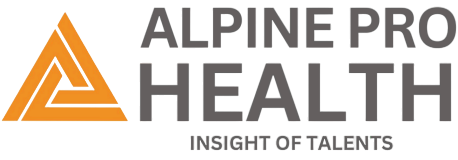In today’s complex healthcare environment, managing claim denials efficiently is more critical than ever. Payers are becoming more stringent, coding regulations are evolving rapidly, and errors in clinical documentation or medical coding can lead to a significant revenue loss. A hybrid approach to denials management combining human expertise with advanced technology has emerged as the most effective Denial strategy to reduce denials and boost the revenue cycle.
In this article, we’ll explore six best practices for a hybrid approach to denials management, helping healthcare providers strengthen their denial prevention efforts, streamline operations, and maximize reimbursement.
1. Strengthen Front-End Processes with Automated Eligibility and Preauthorization Checks
Most claim denials, unfortunately, originate from front-end errors—such as incorrect patient information, insurance ineligibility, or missed preauthorization. These seemingly small issues can have a major impact on reimbursement outcomes.
However, by implementing automation tools for real-time eligibility verification and preauthorization, healthcare organizations can significantly reduce these avoidable denials. As a result, the claims process becomes more streamlined, accurate, and efficient.
Best Practice:
Use integrated Revenue Cycle Management (RCM) platforms that connect scheduling, registration, and insurance verification processes. These systems instantly flag issues before the claim is submitted, enabling staff to fix them proactively.
Impact:
- Fewer eligibility-related denials
- Reduced rework and faster claims processing
- Enhanced patient experience
2. Leverage AI and Machine Learning to Identify Denial Trends
Artificial intelligence (AI) and machine learning algorithms can analyze historical claim data to detect patterns and predict which claims are most likely to be denied. These insights help coding and billing teams proactively adjust documentation and coding practices.
Best Practice:
Adopt clinical AI tools that offer predictive analytics and dashboards displaying common denial reasons. Additionally, these tools provide recommended actions to prevent recurring issues.
Impact:
- Data-driven decision-making
- Improved accuracy in medical coding
- Lower denial rates
3. Combine Manual Review with Technology for Coding Accuracy
While AI tools and computer-assisted coding (CAC) systems significantly speed up medical coding, human oversight remains essential. This is especially true for complex cases, where accuracy is critical. A hybrid approach that combines manual review with automated coding tools ensures compliance and reduces coding-related denials.
Best Practice:
Establish a dual-layer coding process where CAC-generated codes are reviewed by certified coders before submission. Conduct regular audits to ensure consistency and compliance.
Impact:
- Enhanced coding quality
- Compliance with payer-specific guidelines
- Fewer coding-related claim denials
4. Streamline Denial Appeals with Centralized Workflow Tools
Not all denials can be prevented. That’s why it’s essential to have a centralized and structured approach for managing and appealing denials. Denial management tools with workflow automation help teams prioritize, track, and follow up on denied claims efficiently.
Best Practice:
Use RCM software that categorizes denials based on type, payer, and department. Assign tasks to specific team members and set timelines for follow-ups. Templates for appeal letters can further speed up the process.
Impact:
- Faster resolution of claim denial cases
- Better visibility into appeal outcomes
- Increased collections from previously denied claims
5. Collaborate Across Departments to Address Root Causes
Denial management isn’t just the responsibility of the billing or coding department. It requires cross-functional collaboration among providers, clinical staff, and RCM teams to address systemic issues. Open communication channels and shared accountability are key to long-term success.
Best Practice:
Hold monthly denial review meetings with clinical, coding, and billing teams to discuss denial trends, root causes, and corrective actions. Use denial reports to highlight the most common and preventable issues.
Impact:
- Reduced recurrence of preventable denials
- Improved documentation and coding practices
- Better teamwork and transparency
6. Continuously Educate Staff on Denial Prevention
Payer rules, coding standards, and documentation requirements are constantly evolving. Continuous education is crucial to keep all team members aligned with the latest regulations and payer-specific policies.
Best Practice:
Develop ongoing training programs for coders, billers, and clinical staff. Include updates on ICD-10, CPT, and HCPCS codes, payer guidelines, and compliance regulations. Encourage certification renewals and offer access to webinars or industry events.
Impact:
- Higher claim accuracy
- Fewer documentation and coding errors
- Enhanced revenue integrity
Benefits of a Hybrid Denials Management Strategy
Adopting a hybrid approach to denials management blending human intelligence with technology offers numerous advantages:
- Scalability: Automation can handle high-volume tasks, allowing teams to focus on complex issues.
- Accuracy: While AI tools improve coding precision, human oversight, on the other hand, ensures compliance.
- Efficiency: Workflow automation accelerates appeals and reduces administrative overhead.
- Financial Health: Reduced denial rates translate directly into higher revenue and lower AR days.
How Alpine Pro Health Can Help?
At Alpine Pro Health, we specialize in delivering hybrid denial management solutions that combine the best of both worlds cutting-edge AI technology and expert human insight. Our AAPC- and AHIMA-certified coders, auditors, and CDI professionals work hand-in-hand with our automation tools to address both the volume and complexity of today’s medical coding and denial challenges.
Final Thoughts
Denial management is no longer just about reacting to rejected claims, it’s about proactively preventing them through smarter systems and collaborative strategies. A hybrid approach that blends technology with human expertise is the key to transforming your denials management workflow.
By implementing these six best practices, healthcare organizations can significantly reduce denial rates, ensure accurate medical coding, and ultimately improve their overall financial performance. Moreover, whether you’re a hospital, physician group, or billing company, adopting a hybrid strategy is not only practical but also a forward-thinking investment in your revenue cycle success.


